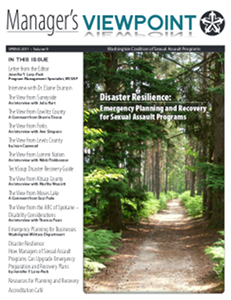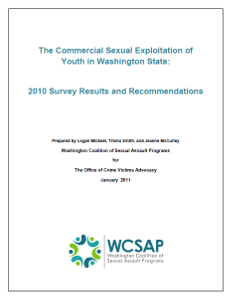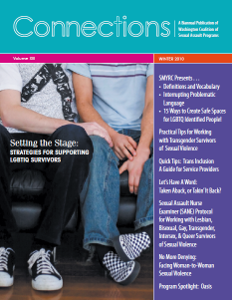Children who have been sexually abused have often experienced an entire series of traumatic events, from multiple victimizations to seriously disrupted relationships with their parents. These children's experiences can't be described with the traditional posttraumatic stress disorder (PTSD) label; their fundamental ways of interacting with the world and sometimes even their biological functions are changed because of the chronic, pervasive stress to which they have been exposed at this…
- Prevention
- Working With Survivors
- Accreditation
- Advocacy Areas
- Culturally Specific
- Legal Resources
- Management
- Medical Resources
- SA Protection Order
- Subpoenas
- Support Groups
- Tech Safety
- Resources
- Policy
- Training


